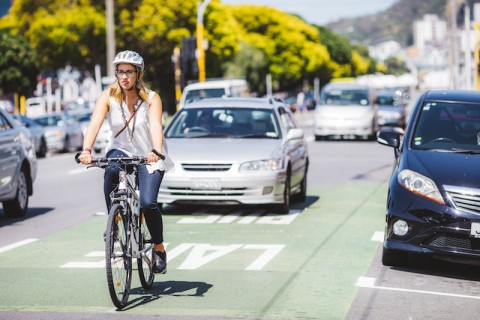
Brake, the road safety charity, is encouraging all drivers to leave their cars at home and use alternative forms of transport on World Car Free Day.
Every year on 22 September, people from around the world choose to walk, cycle and use public transport for their journeys to show that there is a cleaner, greener alternative to getting into the car for every trip. 76% of trips less than 5km long are made by car, many of which could be made by foot, bike or public transport.
Air pollution is a threat to health, with around 300 premature deaths each year attributed to it in Auckland alone. The social cost from air pollution in Auckland is estimated to be $1.07 billion per year [1]. By reducing the number of trips taken by car, and increasing numbers making use of more sustainable modes of transport, like walking and cycling, there is a real opportunity to improve the environment, public health and social well-being of NZ.
Brake believes that local councils and government should be investing more money in sustainable transport infrastructure; giving walking, cycling and public transport a fair share of transport spending.
Increasing funding in active and sustainable transport, and the transport options available, also helps us to aim for Vision Zero - zero road deaths and serious injuries. Safe routes, separated from traffic, for people on foot and bicycles; public transport that is frequent, cheap and green; and traffic-free civic spaces help to create a transport system that is safe, sustainable, healthy and fair for everyone.
Caroline Perry, Brake’s NZ director, said: "In an ideal world we’d love all car users to change their attitudes and only use their vehicles when necessary rather than down to sheer convenience, as it currently is. However, that can only be done on a major scale if there is significant investment in safer and cheaper alternatives. Many people are turned off walking and cycling due to how unsafe they feel, and public transport isn’t an adequate or convenient alternative for many communities. We need a fair share of transport funding for sustainable modes of transport to help create liveable cities and communities."
